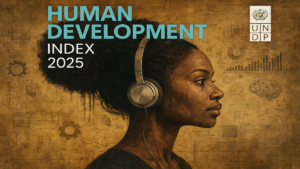In its recent report titled “Interwoven Lives, Threads of Hope,” the United Nations Population Fund (UNFPA) sheds light on India’s demographic landscape. With a current estimated population of 1.44 billion, India maintains its status as the most populous country globally. Notably, 24% of this vast populace falls within the age bracket of 0-14 years, indicating a significant youth demographic.
Projected Population Growth
UNFPA projects India’s population to double in 77 years, emphasizing the urgency of addressing issues related to sexual and reproductive health and rights to mitigate inequalities.
Age Distribution in India
Breaking down the demographic distribution, UNFPA reveals that:
- 17% of the population falls within the 10-19 age range.
- 26% falls within the 10-24 age range.
- The bulk of the population, comprising 68%, lies within the productive age group of 15-64 years.
- A smaller portion, 7%, consists of individuals aged 65 and above.
Healthcare Disparities and Challenges
While there have been improvements in maternal health services, significant challenges persist. Notably, India has seen a decline in child marriage rates, yet it remains at 23% between 2006 and 2023. Maternal mortality, though decreasing, still accounts for 8% of global maternal deaths. Disparities in healthcare access persist, with marginalized communities facing unequal access to sexual and reproductive health services.
Regional Disparities and Maternal Mortality
Certain regions, such as Arunachal Pradesh’s Tirap district, exhibit alarmingly high maternal mortality rates, reaching 1,671 deaths per 100,000 births. These disparities underscore the need for targeted interventions to address healthcare inequalities and improve maternal health outcomes.
UNFPA’s Mandate and Role
As a subsidiary organ of the United Nations General Assembly, UNFPA serves as the global authority on sexual and reproductive health. Established in 1969, UNFPA’s mandate is pivotal in addressing the multifaceted challenges posed by population dynamics, advocating for equitable access to healthcare and reproductive rights worldwide.




 India's Progress in Human Development In...
India's Progress in Human Development In...
 CareEdge State Rankings 2025: Maharashtr...
CareEdge State Rankings 2025: Maharashtr...
 Top 10 Most Expensive Cities To Live Aro...
Top 10 Most Expensive Cities To Live Aro...








